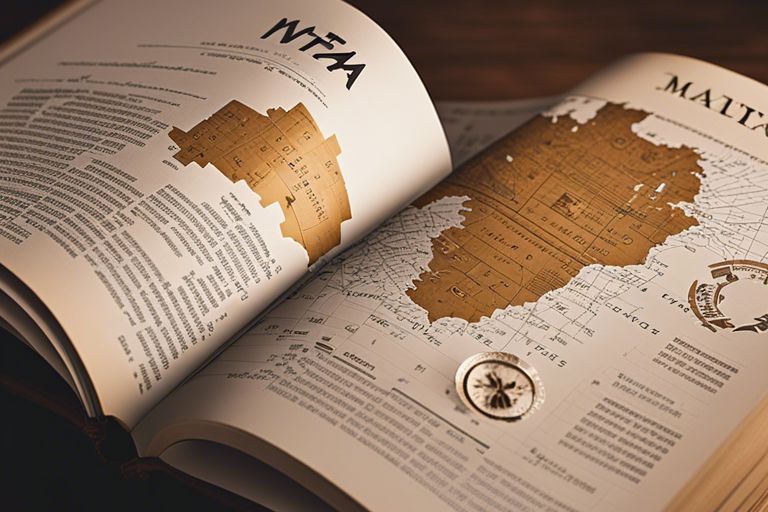Understanding Malta’s Taxation Information

Over the years, Malta has gained popularity as a tax-efficient jurisdiction for businesses and individuals alike. With its strategic location, advanced infrastructure (10 posts)" class="autobesttag" style="color:#77da55" rel="nofollow" href="https://malta-media.com/tag/infrastructure/">infrastructure, and attractive tax regime, understanding Malta’s taxation information is crucial for anyone looking to establish a presence or benefit from the tax incentives offered by the country. Malta’s tax system includes various incentives and regulations that can significantly impact businesses and individuals operating within its borders. From corporate tax rates to incentives for foreign investors, knowing the ins and outs of Malta’s tax laws can help you make informed decisions and optimize your tax planning strategies. In this blog post, we will examine into the key aspects of Malta’s taxation system to provide you with a comprehensive understanding of how taxes work in this jurisdiction.
Personal Taxation in Malta
Your personal taxation in Malta is governed by the country’s Income Tax Act, which outlines the rules and regulations related to individuals’ tax obligations.
Income Tax Rates and Brackets
To determine your income tax in Malta, the country follows a progressive tax system with different tax rates and brackets based on your income level. The tax rates range from 0% to 35%, with various brackets ensuring that individuals with higher incomes pay a higher percentage of tax.
Tax Credits and Exemptions
Malta offers various tax credits and exemptions to individuals to reduce their tax burden. These include tax credits for specific expenses such as medical expenses, education expenses, and donations to approved institutions. Additionally, individuals may be eligible for tax exemptions on certain types of income, such as income from a qualifying employment or income from investments.
Rates: It is imperative for individuals in Malta to take advantage of tax credits and exemptions to optimize their tax savings. By carefully assessing your eligibility for these benefits, you can significantly reduce your overall tax liability and maximize your take-home pay.
Corporate Taxation in Malta
Corporate Tax Structure
It is important for businesses operating in Malta to understand the corporate tax structure in place. Malta operates a full imputation system, wherein tax paid by a company is imputed to shareholders upon a distribution of profits as dividends. The basic rate of corporate tax in Malta is 35%, but various tax refunds and incentives bring the effective tax rate down significantly.
Incentives for Businesses and Investors
Taxation incentives play a crucial role in attracting businesses and investors to Malta. Malta offers an array of incentives, including tax refunds on passive income, participation exemptions, and double taxation relief. The country also provides incentives for research and development, job creation, and investment in certain industries like film production and aviation.
Malta provides a stable and business-friendly environment for companies looking to establish a presence in Europe. The tax incentives and refunds available make it an attractive destination for businesses seeking to optimize their tax liabilities while benefitting from a strategic location within the European Union.
Value Added Tax (VAT) and Other Indirect Taxes
Understanding VAT in Malta
Now, let’s examine into Value Added Tax (VAT) in Malta. With a standard rate of 18%, VAT is a consumption tax that is levied on the supply of goods and services in Malta. Understanding how VAT works is crucial for businesses operating in the country, as they are required to register for VAT if their annual taxable turnover exceeds a certain threshold.
Stamp Duties and Customs
On the other hand, Stamp Duties and Customs play a significant role in Malta’s indirect taxation system. Stamp duties are applicable on various legal documents, including property transfers and commercial agreements, while Customs duties are levied on goods imported into the country. It is vital for individuals and businesses to understand the implications of these duties to avoid any potential penalties or legal issues.
Stamp duties can impact the financial aspects of property transactions significantly, with rates varying depending on the type of document. On the other hand, Customs duties can affect the cost of imported goods, making it crucial for businesses to factor these expenses into their financial planning. It is advisable to seek professional guidance to navigate the complexities of Stamp Duties and Customs in Malta.
International Tax Considerations
Double Taxation Agreements
To minimize the burden of double taxation for businesses and individuals engaging in cross-border transactions, Malta has entered into a network of Double Taxation Agreements (DTAs) with various countries. DTAs ensure that income is not taxed twice – once in the country where it is earned and again in the country of residence. By providing mechanisms for relief through a tax credit or exemption, these agreements promote international trade and investment while preventing fiscal evasion.
EU Tax Directives and Compliance
To ensure harmonization with European Union standards, Malta has implemented various EU Tax Directives to promote fair tax competition, combat tax evasion, and improve transparency. Compliance with these directives is crucial for businesses operating within the EU to avoid penalties and maintain their credibility. The directives cover areas such as the exchange of tax information, anti-money laundering measures, and the implementation of anti-tax avoidance rules.
An understanding of EU Tax Directives and Compliance is crucial for businesses looking to operate within the EU. By adhering to these regulations, companies can demonstrate their commitment to ethical business practices and avoid potential legal repercussions for non-compliance. It is incumbent upon businesses to stay informed about updates to EU tax directives and ensure they are operating in accordance with the latest guidelines to maintain their fiscal integrity.
Summing up
Ultimately, understanding Malta’s taxation information is crucial for individuals and businesses operating in or considering investing in the country. With its competitive tax regime, various incentives, and double taxation agreements, Malta offers numerous opportunities for tax planning and optimization. By staying informed about Malta’s tax laws and regulations, stakeholders can make well-informed decisions to maximize their financial outcomes while ensuring compliance with the local tax authorities. It is advisable to seek professional advice to navigate the complexities of Malta’s taxation system effectively.
FAQs:
What are the personal income tax rates in Malta?
In Malta, personal income tax rates range from 0% to 35%, following a progressive tax system based on income levels.
What tax credits and exemptions are available for individuals in Malta?
Malta offers various tax credits for expenses like medical and education, along with exemptions for certain types of income such as qualifying employment or investments.
How does Malta’s corporate tax system work?
Malta operates a full imputation system where corporate tax paid is imputed to shareholders upon profit distribution as dividends, with a basic corporate tax rate of 35%.
What incentives does Malta offer for businesses and investors?
Malta provides incentives including tax refunds on passive income, participation exemptions, and double taxation relief to attract businesses and investors.
What is the standard VAT rate in Malta, and who needs to register for VAT?
The standard VAT rate in Malta is 18%, and businesses must register for VAT if their annual taxable turnover exceeds a certain threshold.
Recommended Posts

Financial Aspects of Doing Business in Malta
July 26, 2024

The Rise of Digital Banking Solutions in Malta
July 24, 2024





